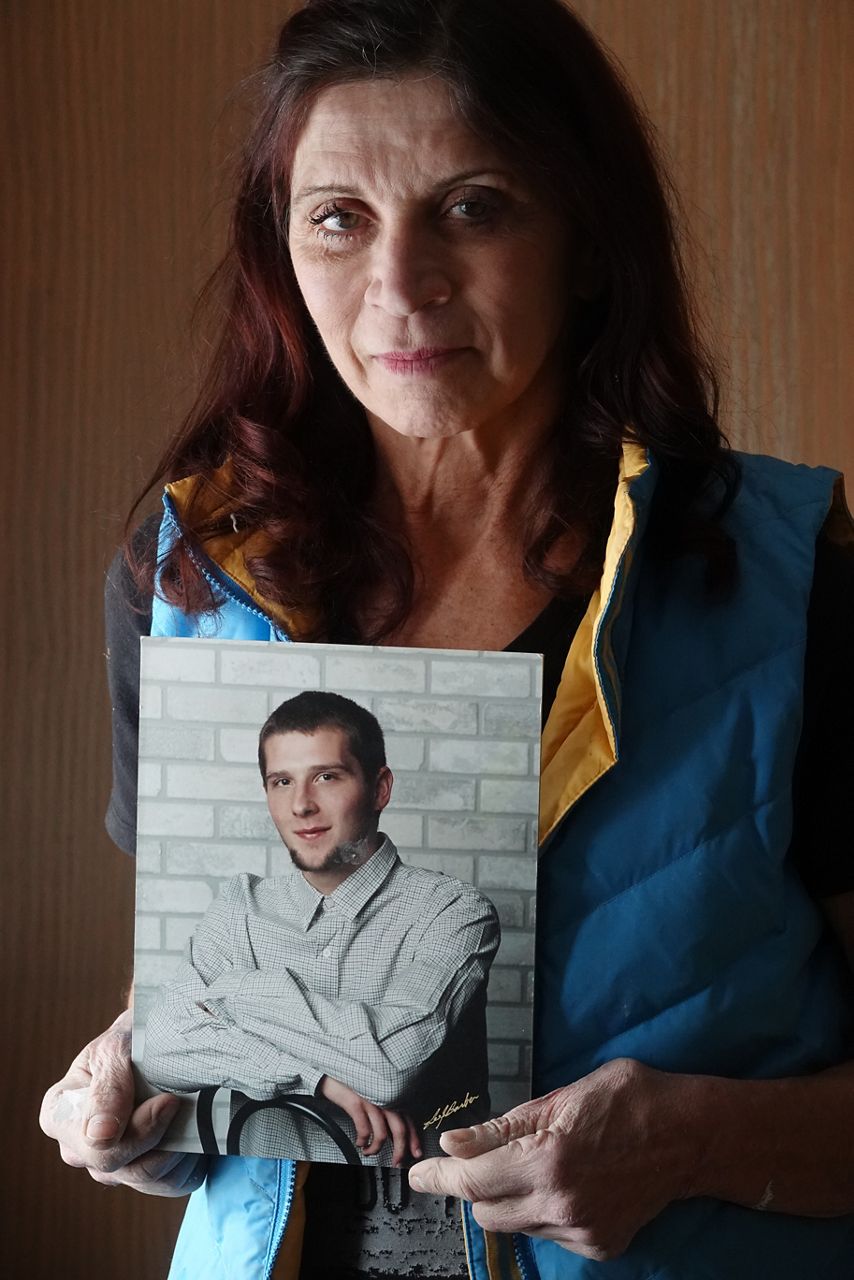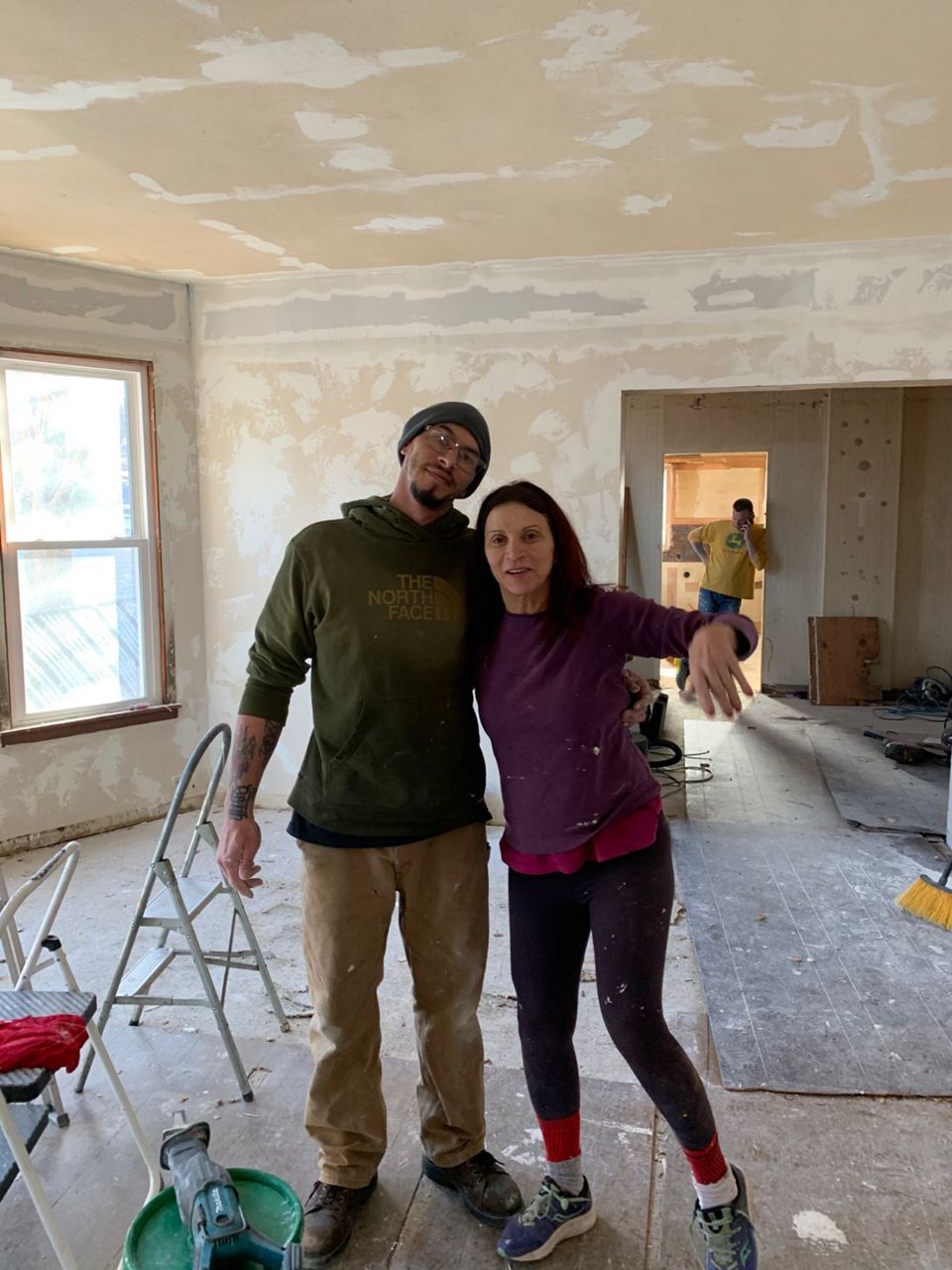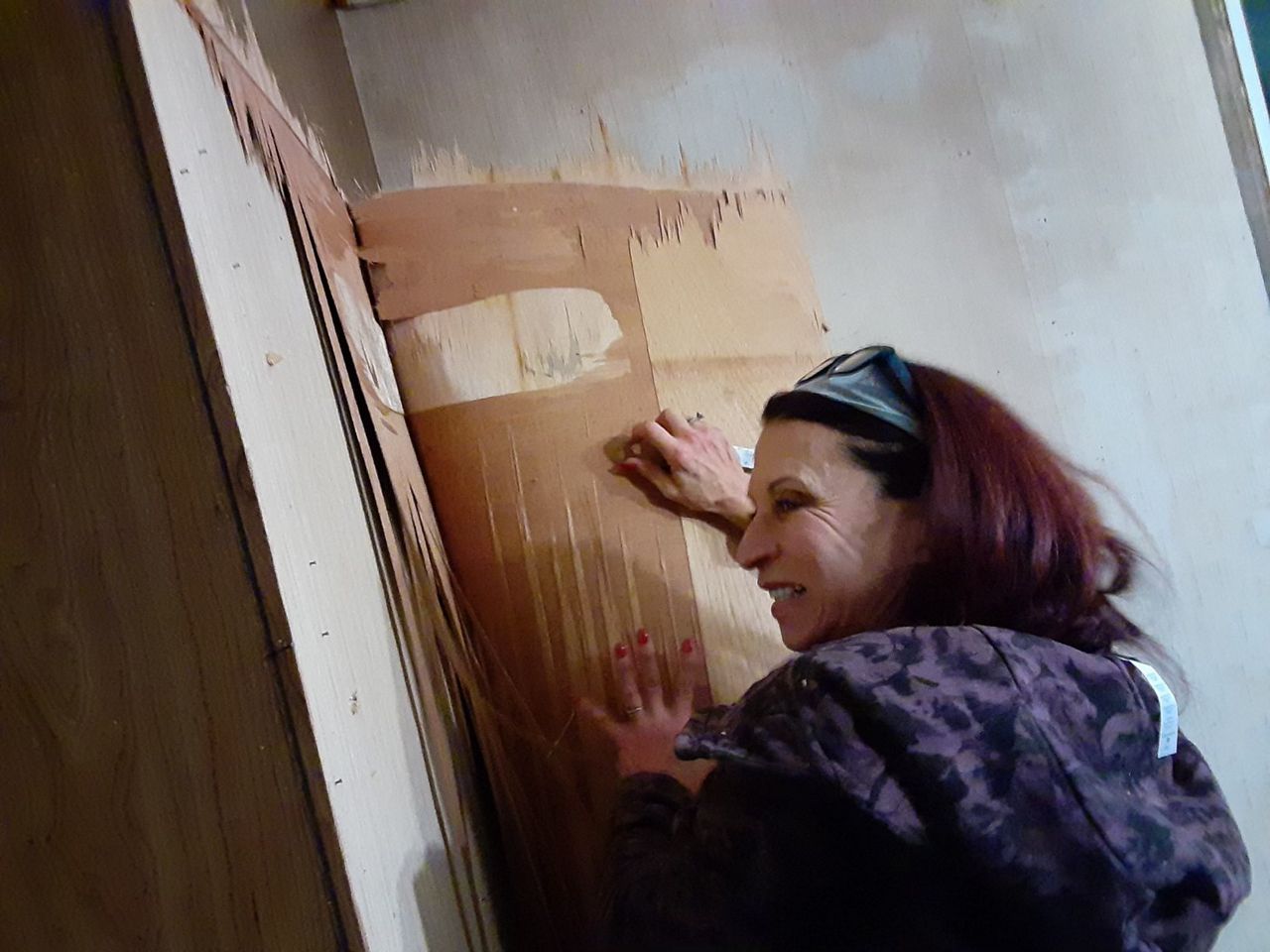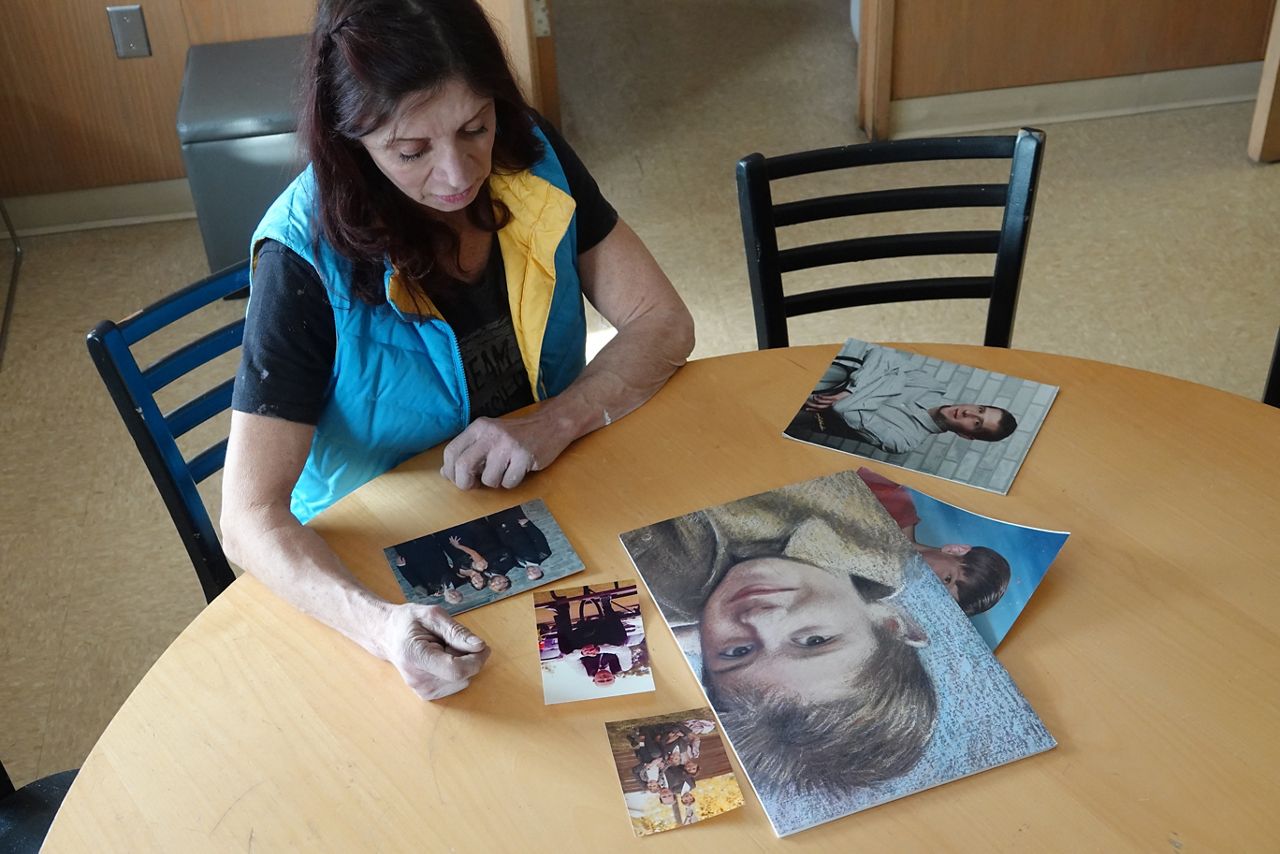GRAND CHUTE, Wis. – Death was already in the air when Gloria West, full of concern and engulfed by conflict, finally decided to get in her car and make the trip to Minneapolis.
Earlier that Friday morning her oldest son, Jeremy, called her with the news that their day-old child -- Gloria’s first grandchild -- had passed away. This came at the same time when her youngest son, Elliott, consumed in a years-long battle with alcoholism, was hours away from entering a rehab facility that Gloria hoped and prayed would finally be his path to renewal.
Minneapolis is where she had to be; staying home in De Pere with Elliott is where she needed to be.
“I deliberated all morning long,’’ she said.
Elliott, she knew, would drink while at home. She feared if he did, it would jeopardize his opportunity to get into the Mooring House, an addiction treatment facility in Appleton, where he was scheduled to enter Monday morning. He was supposed to report to the Mooring House that Friday morning, but was delayed because there was no space available until Monday.
But guests were coming later that day, Kenyan runners from Minneapolis who were to partake in a for-money race the next day, and Gloria told Elliott if he went to his Alcoholics Anonymous meeting that morning and tended to the Kenyans’ needs upon their arrival, she would go.
Elliott agreed and Gloria, after Elliott’s ride came to pick him up for the meeting, left for Minneapolis around noon.
A couple of hours later, she called Elliott to see if the Kenyans had arrived.
“By the time I called, it was about 3 in the afternoon and he had started drinking,’’ said Gloria, “And, I’m like, ‘Elliott, you’ve got to … you can’t ... didn’t matter.”
She arrived at Jeremy’s house at 5 p.m., and then called a girlfriend to go over to her home and make sure all was OK. Her girlfriend came over, saw a car in the driveway, and reported back that the Kenyans had arrived and things appeared OK.
Gloria went back to Jeremy, holding him in her arms, as they sat in silence.
“We were grieving over the baby when I got a call from the De Pere police,’’ said Gloria. “They said, ‘Your son is dead.’’’
****
It’s hard to say where things began to unravel for Elliott.
The divorce, for sure, was devastating. His parents’ 21-year marriage ended when his father, a prominent physician in Appleton, came out as gay.
“I look back and the kids; we should have had therapy,’’ said Gloria of her three sons, who were about to or had just begun their teenage years, “But we couldn’t.’’
According to Gloria, there were problems with her ex-husband’s partner: Anger issues, ill treatment and hard feelings. A wedge between the two families arose.
“It just obliterated any part of us being able to have any type of therapy,’’ she said.
After high school, Elliott went to Humboldt University in California.
“But he never wanted to come home for Christmas,’’ said Gloria, “Or anything.’’
Elliott eventually lost his girlfriend, his job, and his best friend, and it wasn’t until years later when Gloria understood why.
“Alcoholism, as it progresses … they’ll lose everything,’’ she said, “Because your friend is the bottle.’’
Gloria admits she had no idea the degree to which Elliott was declining until the family gathered for Thanksgiving one year in Puerto Rico at the home of Gloria’s niece.
“He got off the plane and I couldn’t believe it,’’ she said. “I looked at his body, thin, his skin was kind of yellow and he kind of shook a little bit. I’m like, ‘Elliott … what?’’’
There was a fishing trip scheduled for the day of Thanksgiving. Eight hours in a boat, no alcohol allowed. After dinner Elliott got up, then fell to the floor and went into a seizure.
“About an hour later, the medics came and they kind of took care of him,’’ said Gloria, “And I’ll never forget this. They said, ‘Lady if you’re going back to the states, you make sure he drinks on the plane. He’s an alcoholic and that’s why this happened.’’’
Back in Wisconsin, Gloria took Elliott to a hospital where he was tested and his blood-alcohol level was .375%, just under the 0.40% that is the accepted lethal dose for about 50% of adults.
“She (the nurse) said, ‘He’s never going to make it,’’’ said Gloria.
Five alarm bells immediately exploded in Gloria’s head. She joined a program that combined AA and Al-Anon to try and understand what was transpiring with her son. Up to four days a week, including Saturdays, she went to meetings.
It began years before with a family intervention, Elliott in and out of rehab facilities, and developments that had family believing Elliott had hit rock bottom, only to see him sink deeper.
Everyone had advice for what Gloria should do, but it was her that carried the burden.
“I was trying to do what everybody is telling me to do,’’ Gloria said. “‘You’re out of the house. You have to find your own way. Go to a shelter.’ He wouldn’t go. The police would bring him back and say, ‘Lady, we found this guy in the middle of the street. You’ve got to take him back.' I said … I tried to explain … and he said, ‘It’s not our problem. It’s your problem.’’’
Another time she kicked Elliott out of her house for drinking and brought him to a nearby hotel. It was winter, and in the middle of the night he went out to his car to get his cigarettes, even though his car was not there. He left his hotel key behind and could not get back in. The next morning Gloria found him in a ditch, his fingers frostbitten.
“I took him to the hospital and luckily they were able to save his fingers,’’ said Gloria. “You would think that would do it; no.”
Mary Gwost, Gloria’s sister-in-law who lives in the Minneapolis area, knew the helplessness Gloria was experiencing was beginning to overwhelm her.
“Just the guilt in trying to find something that would work, and nothing is taking,’’ Mary said. “So, yeah, a lot of guilt.”
****
After Elliott began drinking that Friday afternoon, he also began to take lorazepam, an anxiety medicine, that Gloria was unaware he had.
He then went for a dive in the family pool.
“He didn’t come back up,’’ said Gloria. “His dog came out to get the Kenyans and they came out there, but they didn’t know how to get him out of the pool. They didn’t know how to swim. And that was the story.”
Elliott was 31.

When Mary reached Jeremy’s home that afternoon she found Gloria, alone, on a couch in a small, darkened living room.
“It was almost as if she was trying to claw her way into the wall,’’ said Mary. “She was just was so, so upset and there wasn’t any calming her down.
“Everyone was standing around, not knowing what to do. I said we need to call 911. She needs help. We can’t give her the help she needs. She needs help.”
Eventually, Mary returned with Gloria to Wisconsin, helping plan Elliott’s funeral and remaining there to keep her company and be her support system.
“You can’t tell somebody that it’s going to be OK,’’ she said. “They’re not going to believe it.”
Mary kept Gloria busy with small projects but, mostly, tried to keep her calm.
“More than anything just help her with her breathing; take a breath,’’ Mary said. “Breathe. Help the body calm down and breathe naturally and not hyperventilating.
“There is no way, no way I could ever tell her things would get easier; things would get better. I couldn’t because she was not in a state to hear something like that. … She was a walking zombie.”
Eventually, Mary returned to Minnesota but guilt continued to cling to Gloria like a shadow. It consumed her and reached a point where she decided she couldn’t take it anymore. She went out in her backyard and began to dig her own grave.
“I wanted to die,’’ she said. “I wanted to die. I just wanted to bury myself, and I tried. But the ground was all clay and I couldn’t get anyplace.
“There is nothing like losing … that is the hardest thing.”
But somehow, someway, Gloria decided she would choose life.
“Years of study and therapy have taught me that you can live with the pain,’’ she said, “And still have joy. You still have to go on.”
****
Gloria decided she would return to what she knew best.
She is the unquestioned matriarch of the running community in northeast Wisconsin. She launched the Pacesetters running club, was the driving force behind the Fox Cities Marathon -- now in its 30th year -- started the Green Bay Marathon, and has organized countless duathlons, triathlons, half-marathons, and mud runs through her Midwest Sports Events organization since changed to DuTriRun and now run by her son, Ben.
After Elliott’s death, she decided she would take on two events, the ReThink Addiction Run to honor Elliott and a mud run through the Maribel Caves in Maribel.
It was in Maribel where she found a release for all her pain.
“I had to kind of make a path for a 5K through that woods; that was probably one of the best therapeutic things I could do,’’ said Gloria, “Because I could get out in that woods and I could scream because nobody was around. I could scream all my anger and my hurt.
“That was kind of a Godsend at the time, that that was put in my path.’’
It was at the ReThink Addiction Run where she met a gentleman who planted the seed in her head about buying and flipping houses.
This, Gloria thought, would be a great way to raise money. Much more money than she could raise with a race. She would donate the money to rehab centers in the hopes it would help others to have a different outcome to their addiction than Elliott.
So the first project began. The gentleman, because of his continued addiction issues, left after only a couple of months, but Gloria continued. She knocked down walls, hauled away trash, painted and decorated. She hired an electrician, a plumber, and someone in heating and cooling to address those issues. She sold her first home and made a $40,000 profit and promptly started writing checks.

“She’s helped us out a lot with our Sober Living Program here, which has been huge,’’ said Trevor Fenrich, executive director of Solutions Recovery, Inc., in Oshkosh. “She has been a very, very large supporter of the expansion of our Sober Living Program.”
When Trevor started, the program had one house and four beds. With Gloria’s latest donation, they just closed on another house which they plan to open in August and will increase their capacity to 19 beds.
“It’s huge,’’ said Trevor. “It’s a game-changer for us.”
The Sober Living Program is a transitional program that takes a holistic approach to recovery. Residents are required to pay rent, hold a job, commit to a certain amount of community service hours, work on building healthy relationships with family and friends, budgeting, health, and nutrition.
It is the community service component that has allowed Gloria to tap into Sober Living programs in the area to get residents to help with her house flipping mission.
“They (the residents) see a big reward from it,’’ said Trevor. “It’s very fulfilling for them. A lot of them either had skills previously and they really enjoy being able to provide that skill to Gloria’s missions. Or they’re learning new skills and they’re excited to be able to put that to use and they do see, ‘Hey, maybe I can use this, or continue to learn this, or maybe do an apprenticeship somewhere.’ So it definitely sparks an interest in that field."
“(Gloria) has a very big heart and the disease of addiction doesn’t discriminate at all; it affects everybody remove underline in so many different areas. A lot of people, when they have those sorts of things happen to them, turn it around and see that they can get through that by giving back to others. And that’s a big part of what Gloria has done. I think it shows the kind of person she is.’’
****
The great irony, Gloria knows, is that of her three sons, Elliott was the one she worried about the least.
“He was the smartest and most organized,’’ she said.
He was blessed with an uncanny memory that could pull trivia from a variety of subjects. He excelled as a dog trainer and caretaker, able to develop a bond with any dog he came across. And he was also partaking in the family business, helping his brother run races for DuTriRun.
“I know the wounding of the whole divorce took a toll,’’ she said.
To date, Gloria has flipped three homes, raising and donating nearly $100,000 to rehab homes. This has become her new devotion, showing the same kind of unfettered passion she did as a race organizer that brought so much joy to so many people. Now, she is trying to help save people.

“I’m 68,’’ she said. “And this keeps me fit. I’m a doer.
“There’s not anything embarrassing about alcoholism. Alcoholism does not discriminate. It hits all ages, all economic groups.”
She stops that thought and pauses.
“I just want to finish my life doing good in the world,” she said.
Mary is thankful Gloria has found something in her life to provide meaning. And is thankful for the time she was able to spend with her after Elliott’s death.
“It was the best thing I could have ever done for my relationship with Gloria,’’ said Mary, who would see Gloria endure further grief when her fiancé, Gary Youso, passed away in 2018.
“Because living with her in her worst time gave me such a good understanding and a love and appreciation for the person she is. It’s not the wild and crazy, almost out-of-control person, but it’s that deep, loving, and caring person that she is. It was the best thing. It was the best thing for me because I have such a love and appreciation for her as a person and her as a mother and all that she has been through. She’s an amazing person.”
Story idea? You can contact Mike Woods at 920-246-6321 or at: michael.t.woods1@charter.com.



